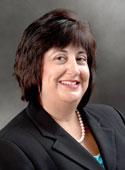By Angela Rocheleau
There are many key factors that will help caregivers be successful as they care for aging family members, perhaps none more important as communication. As with all facets of life, communication is paramount to achieving any goal successfully. Being an effective communicator with verbal and nonverbal skills is even more important when the goal is to help a loved one age at home safely, comfortably and independently for as long as possible.
 Think about the amount of communication that is necessary to navigate the task of keeping loved ones aging in place independently. The primary caregiver is responsible for initiating a suggested plan with their loved one and other family members.
Think about the amount of communication that is necessary to navigate the task of keeping loved ones aging in place independently. The primary caregiver is responsible for initiating a suggested plan with their loved one and other family members.
Next in the process is the daunting task of doing the research and seeking guidance on the options for caring for the senior at home. That could include many conversations with medical, legal and financial professionals as well as community agencies. While exploring the varied and many new options the primary caregiver can expect hours of web surfing, telephone networking, interviewing and discussion. These are life-changing decisions with impact on the whole family.
Once the research is complete, the caregiver will then be responsible to relay the plethora of information to his or her loved one and other involved family members.
The topic of caring for aging family members comes with built in anxieties and often mixed family dynamics and drama. It is therefore imperative that the primary caregiver has superior communication skills.
There are some solid tips that will enhance communication skills. Always remember to show respect for the person you are speaking to and about. Be specific and clear with statements and try to avoid words like “always” and “never.”
Discussions surrounding care for our elders can be emotionally charged. It is necessary to be open and honest about your feelings and keep an open mind about the feelings of others. Ask questions to clarify points or to ensure that you truly understand the feelings of others. It is best to keep negative emotions, frustrations and anger away from this already sensitive and difficult topic.
Often times introducing an objective third party to the conversation such as a physician, geriatric care manager or home health care provider can assist with delicate discussions surrounding the care of the senior and all the legal and financial ramifications.
Be tactful and courteous and remember that when appropriate, a dose of humor can go a long way in handling a tricky conversation. It also helps to keeping an eye on nonverbal communication such as eye contact, body positioning and facial expressions.
Lastly, it is highly recommended by communication specialists that you listen more than you speak.
Angela Rocheleau has 25 years of experience in the home health care industry focusing on leadership roles for the past two decades. She serves on the Better Business Bureau board of Central New England and the Executive Board of the Mass Council for Home Care Aides.












